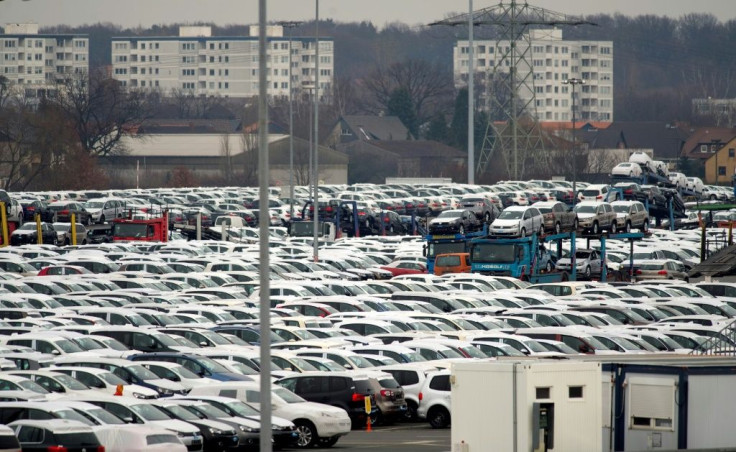Germany Braces For Historic Quarterly GDP Decline On Virus Hit

The German economy suffered a record slump in the second quarter as coronavirus lockdowns took their toll, official data is set to show Thursday, but experts say a recovery is already under way.
Federal statistics agency Destatis will unveil its flash estimate at 0800 GMT, with leading research institutes forecasting that gross domestic product shrank nearly 10 percent between April and June compared with the previous quarter.
Economy Minister Peter Altmaier warned earlier this year that the pandemic would push Europe's top economy into "the worst recession" in its postwar history, ending a decade of growth.
But it's not all bad news.
Germany has withstood the coronavirus shock better than many of its neighbours.
Stable infection rates encouraged the country to relax coronavirus restrictions in early May, allowing factories, shops and restaurants to reopen.
Thursday's data "is a glimpse in the rearview mirror", ING bank analyst Carsten Brzeski told AFP.
"The economy already began picking up in the course of the second quarter."
Altmaier said he expects the German economy to return to growth in October, boosted by unprecedented government stimulus to spur investment and consumer spending, alongside huge rescue packages that have helped companies like Lufthansa stay afloat and preserve thousands of jobs.
Germany's bounce-back should also get a lift from the European Union's 750-billion-euro ($883 billion) coronavirus recovery plan.
Altmaier's ministry forecasts that German output will contract by 6.3 percent in 2020 before expanding by 5.2 percent in 2021.

By contrast, the European Commission expects the economies of France, Italy and Spain to shrink more than 10 percent this year.
Better-than-expected business and consumer confidence surveys recently suggested Germans are feeling more optimistic about the future.
But concerns have grown over a spike in COVID-19 cases at home and across Europe, partly fuelled by summer travel.
As an export powerhouse, Germany is highly vulnerable to virus setbacks in other countries that could lead to renewed shutdowns that once again disrupt supply chains and suppress demand.
In April and May, at the height of the global lockdowns, German exports plummeted around 30 percent year-on-year.
Germany's mighty industrial sector, already feeling the pain from US-China trade tensions and Brexit uncertainty, has been especially hard hit.
Car manufacturing alone fell 40 percent year-on-year over the first six months of 2020, a 45-year low.
ING analyst Brzeski said German exports would take time to return to pre-pandemic levels, leaving the country to rely on domestic demand to power its rebound.
KfW chief economist Fritzi Koehler-Geib said the German economy had a "successful start" to the summer but it was "too early to give the all-clear".
"The pre-crisis level will remain a long way off for the foreseeable future, and the continuing fierce rage of the pandemic in large parts of the world is an enormous risk for Germany as an export nation."
© Copyright AFP {{Year}}. All rights reserved.





















